On the wall of a school nestled deep in Ladakh’s longest village Chuchot, is a mural painted by an artist from Coimbatore — a map of Ladakh. The map, painted by Varun Manoharan in 2019, attracted many passers-by who would often walk over, point and identify the specific village they hail from. They would stop, talk at length about their land, its inhabitants, both animals and otherwise, and what makes it special. “They used the map to tell stories around the villages,” recalls Varun.
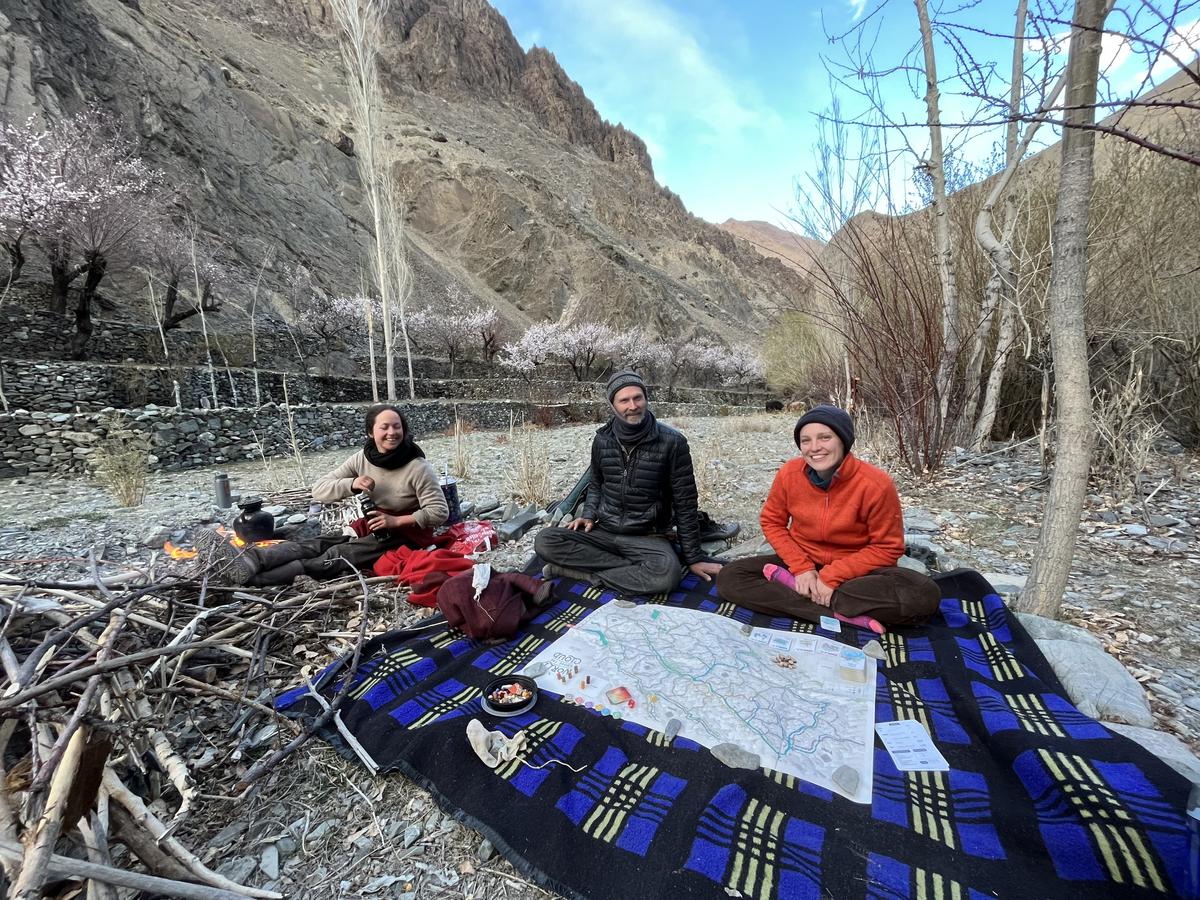
People playing A World Above the Clouds in Ladakh
| Photo Credit:
Special Arrangement
Today, the mural manifests itself on a beautiful tabletop board game aptly titled A World Above the Clouds, inviting one to hike across the various villages of Ladakh, sometimes as a guardian of the region or a storyteller in pursuit of Ladakh’s lost stories. Over the course of this journey, one gathers ‘elements’ and ‘seeds’, and pauses to learn about the region’s ecological wealth. Created over five years spent living in different Ladakhi villages, this strategy game by Floating Rock Games for those over 14 also doubles up as an informal entry point to understanding conservation. Meanwhile, in a tile placement strategy game called Lakshadweep by Siddhant Chand, one gets to build an archipelago with houses, fisheries, hotels, ports, and coral ecosystems.
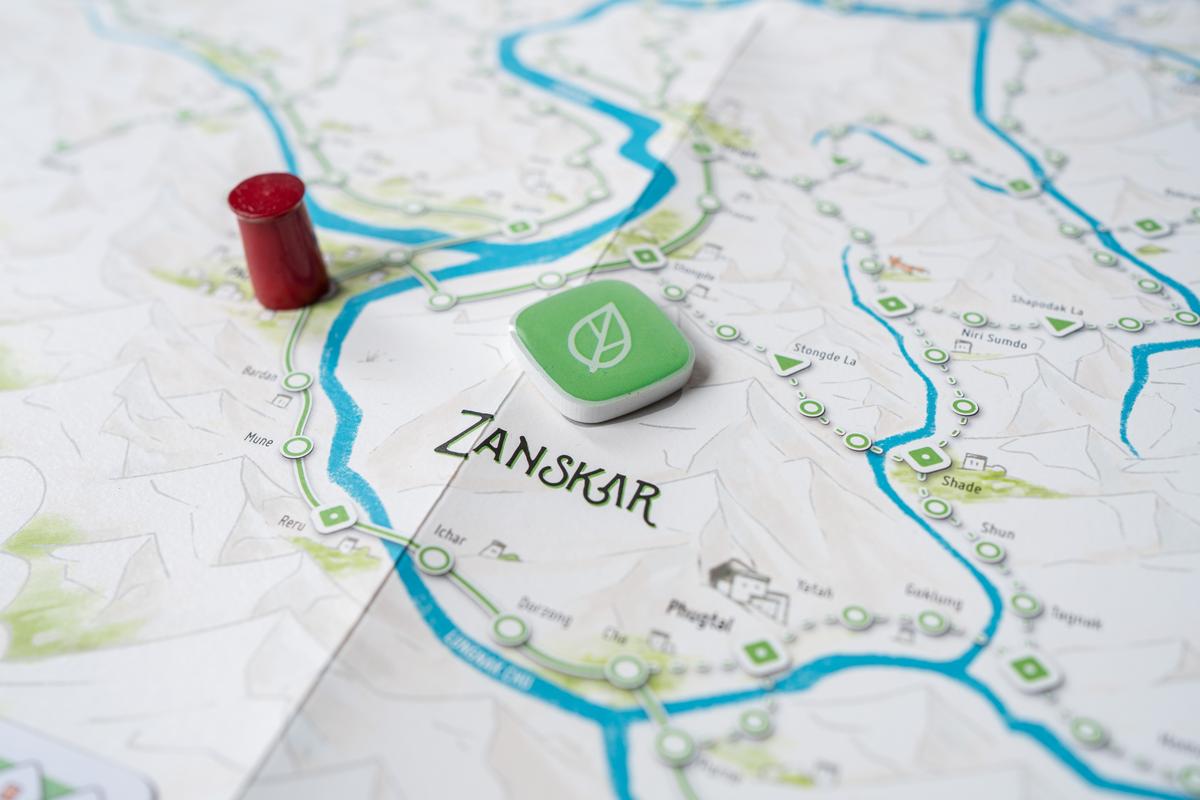
A World Above the Clouds is a boardgame that serves as an informal entry point to understanding conservation
| Photo Credit:
Special Arrangement
What connects these two games?
A World Above the Clouds and Lakshadweep are among a steady, long string of homegrown, modern board games that thrive in geographical and cultural specificities. They are vocally, and unabashedly Indian, often inspired by the topography, culture and socio-politics of the country, giving rise to creators who believe that relatability reigns supreme. While the pandemic and the subsequent push for ‘Make in India’ propelled many of these creations, a growing numbers of gamers are excited about this welcome change.
This proliferation can be literally charted to the length and breadth of the country. Phalgun Polepalli of Bengaluru-based Mozaic Games, and one of the key organisers of the annual board game convention called TTOX in Indian cities, draws up a map through a list of these games. “If you come down a little from Ladakh, there is a game set on the Taj Mahal in Agra and if you come further down, there are games based on Jaipur, while Gujarat has a kite-flying game; there is a game based on the Sunderbans in the East, and when you look at the peninsula, there are games coming out of Chennai, based on its food culture, or a game on Athangudi tiles. In Karnataka, there are many creators who are bringing out games based on Hampi.”
Clearly, this is just the tip of the iceberg.
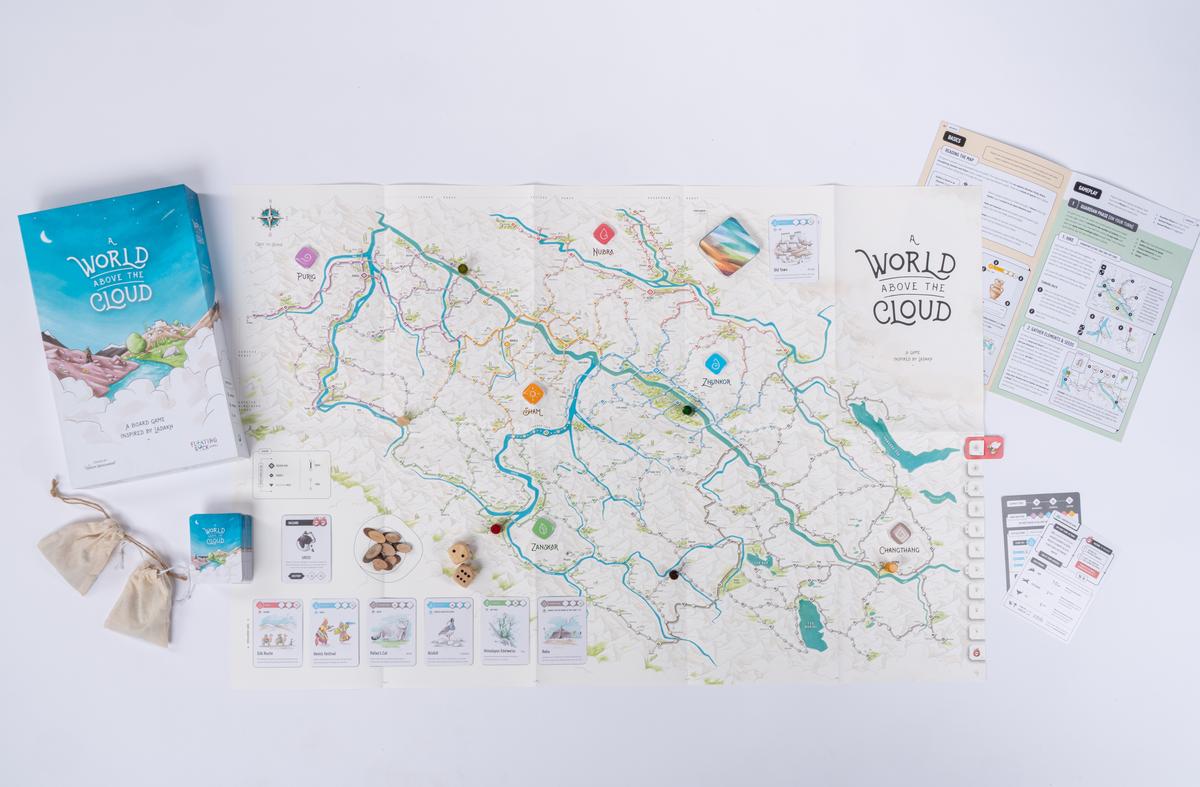
A World Above the Clouds
| Photo Credit:
Special Arrangement
The streets you know
In order to design a board game that reflects the ethos of a specific place, a major pillar of research depends on capturing the city’s nuances — from Bengaluru’s 4am biryani to Mumbai’s local transport or Chennai’s beaches.
Take for instance, Mighty Mumbai, a new game designed like a double-decker bus with quirky characters that one may encounter only in a city like Mumbai that celebrates hustle culture. From Sunil Sixer, the cricketer, to Zoya Zameenwala, the real estate magnate, the characters of Mighty Mumbai are quirky, carrying a personality that one typically associated with a city like Mumbai.
“I was inspired by two things: one was the city itself and how Mumbai attracts people from all over the country, people with dreams, desires and ambition. I find that the spirit of Mumbai is different from the other cities. The second aspect is that today, all of us are influenced by screens. I was very clear that I wanted to do a physical game — where we get to argue, play with each other and truly be in the moment,” says Darshan M, co-founder of Cherapunjee Innovations LLP.
Mighty Mumbai is designed like a double-decker bus with quirky characters
| Photo Credit:
Special Arrangement
“The game teaches you about life itself — the value of having friends, connections and mentors,” says Darshan. One may get pickpocketed, or tire oneself out looking for a PG in this gameplay that reflects life. Cherrapunjee Innovations’s next game is going to be based on the start-up culture of Bengaluru. Another quirky game called Mumbai Connection, designed by Khurshad Batliwala, captures the tension and drama behind creating the most complex city train system, the Mumbai Local.
One of the biggest challenges for creators of board games steeped in culture and geography is the responsibility of accurate representation. Mozaic Games’ Vallamkali, a light strategy party game based on the boat races of Kerala’s Alleppey traces a niche cultural event, the nitty gritties of which are lost on those from outside the State. “As a designer or publisher, you have to take certain measures to involve that particular community right from Day 1. [For Vallamkali], we interviewed the oarsmen who participated in these races. We asked them the most nuanced details pertaining to even the design of the boats, how the movement works in the backwaters and so on.” This process is eye-opening for the creators as well.
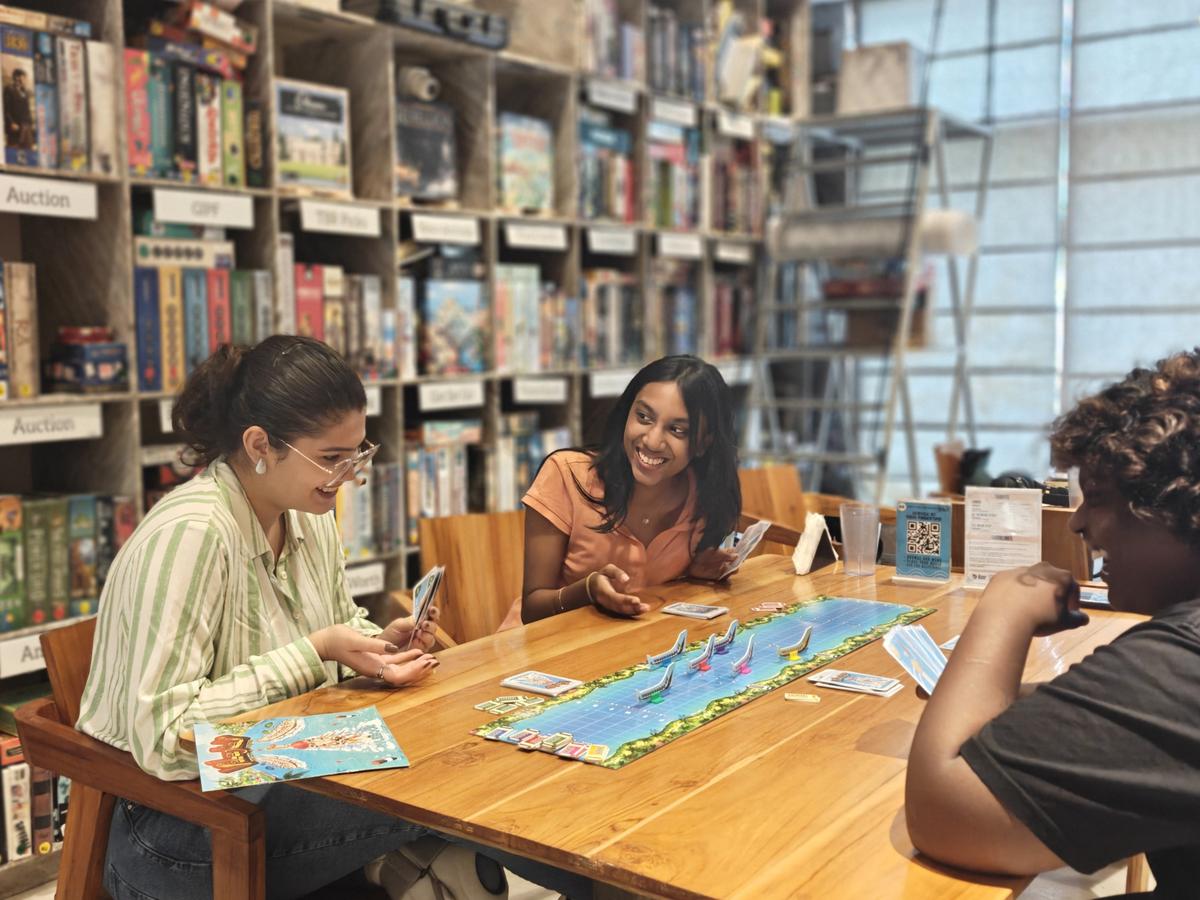
Vallamkali being played at The Board Room Cafe, Chennai
| Photo Credit:
Sangita Rajan on OnePlus
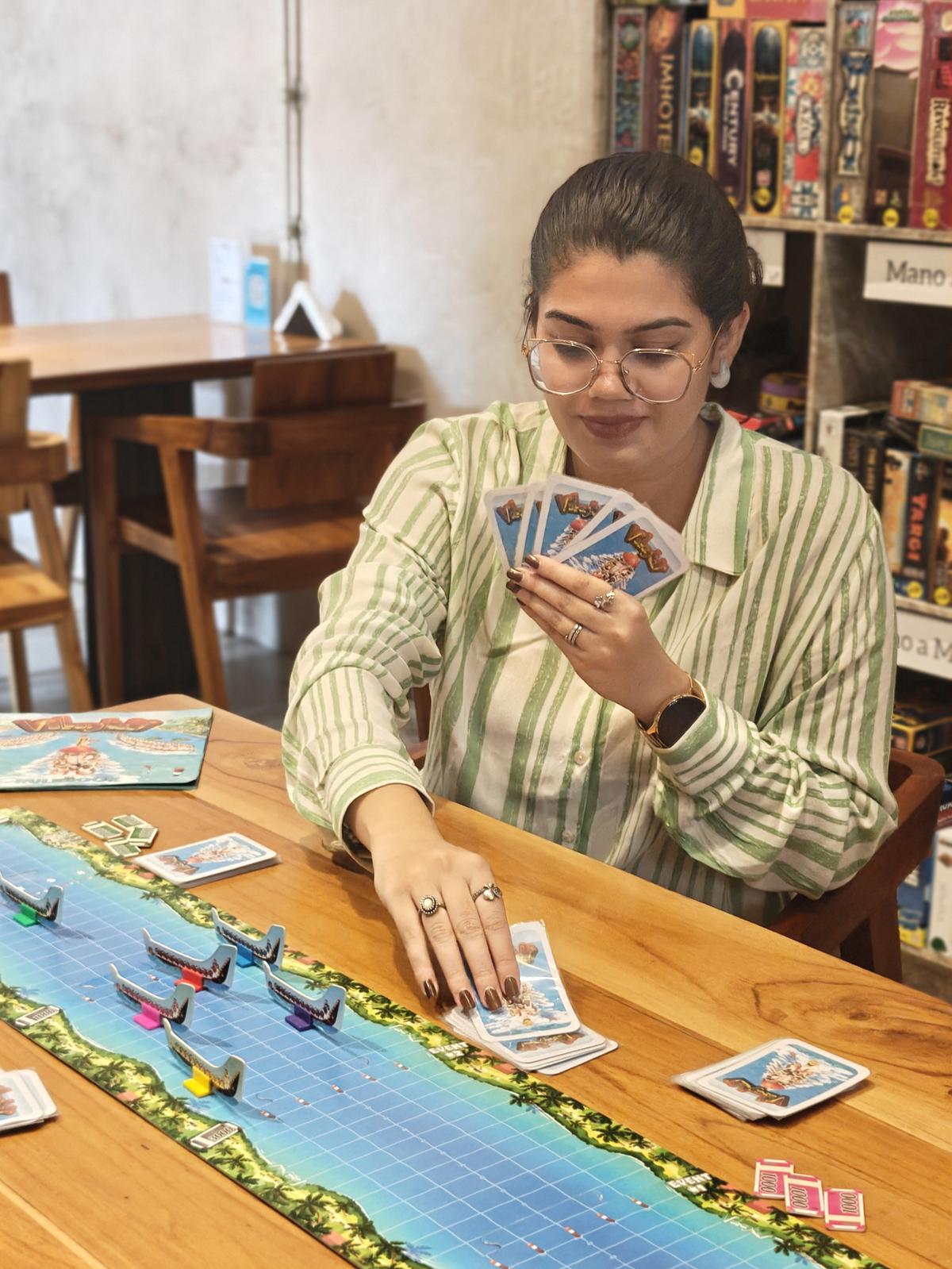
Vallamkali being played at The Board Room Cafe, Chennai
| Photo Credit:
Sangita Rajan on OnePlus
The beauty about this need to look inward is that the gameplay and the theme are woven together so closely, that if you remove the cultural context, the game would cease to make sense. Phalgun continues, “Five years back, you would have games where you roll a dice and move from city to city, discovering different things. Now, there are games that have a modern twist to it. The DNA of a modern game is that it should be playable for over 1,000 times. Even at the 1000th time, it should feel like a fresh, new game.”
Creators also point to an emerging trend that is still at its nascent stages — Western games adopting Indian themes. Imagine Dungeons & Dragons, but with Indian themes. “We recently played a really spooky version that was loosely based on surrounding [the mythical serpent-like creature from Indian folklore] Nagin,” Phalgun adds.
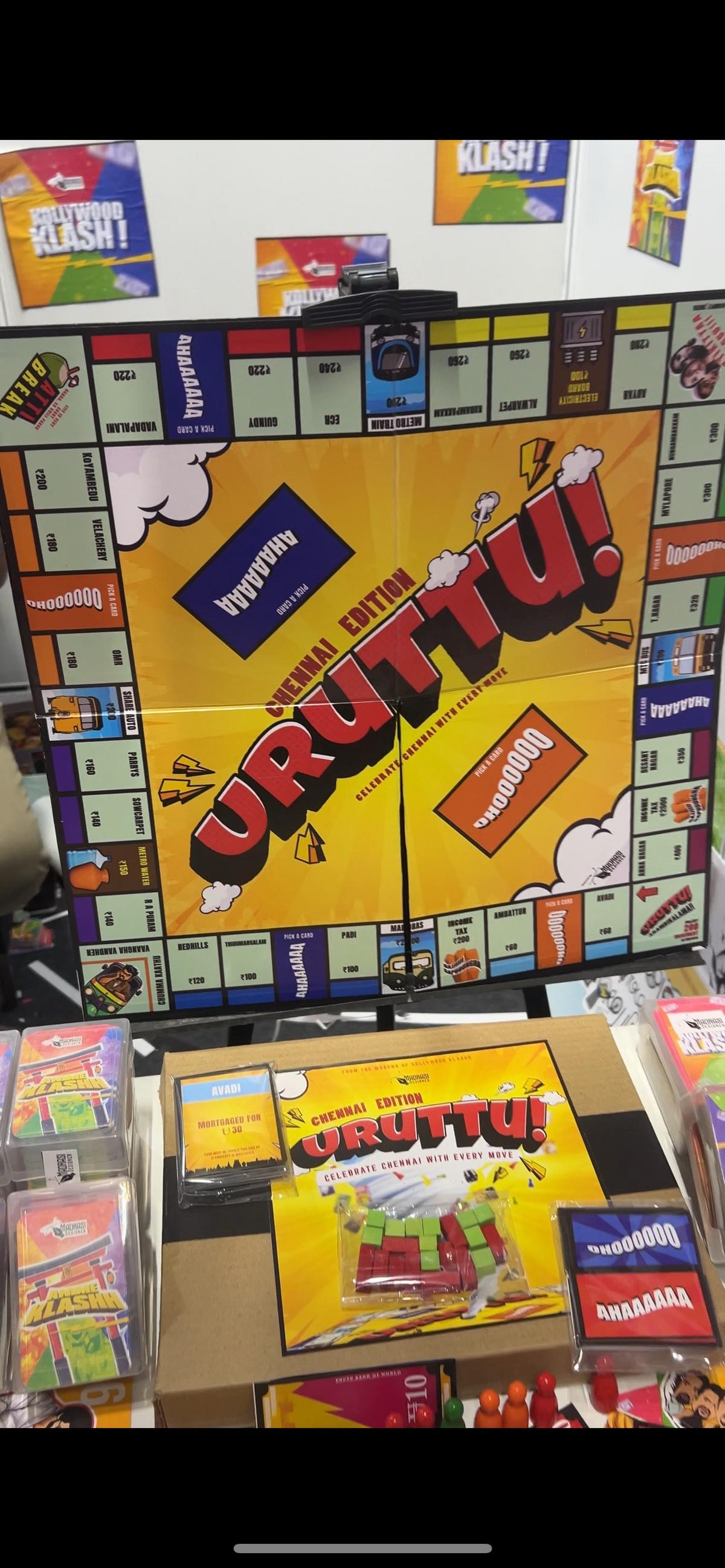
Uruttu is a Tamil version of Monopoly
| Photo Credit:
Special Arrangement
Uruttu on the other hand, is a Tamil version of Monopoly, loaded with regional references by Chennai-based graphic designer Dinesh Kumar. This version emerged from the need to make the game accessible to local gamers looking for leisure, more than intellectual stimulation. For Dinesh, it all started at a game night with family where he introduced a Kollywood twist to the card game UNO, replete with Vadivel dialogues and thalaivar references. Says Dinesh, “When we are expected to understand Western references, why can’t we speak about our culture, and build our own references?” And so, he made a Chennai-inspired board game, based on Monopoly. The city’s unrelenting traffic, its most preferred mediums of transportation — autos and the metro — all make their way into this game. The game that was launched in Comic Con Chennai in February, has already sold 35 sets.
Board games that take after cities, towns and culture, are sometimes accidental tools for tangible documentation. They are also collected as souvenirs, and are popular gifting choices. Says Darshan, “The hope is that someone would request a blow up of Mighty Mumbai, as a souvenir, where it looks like a piece of Mumbai that you can take back home. Over time, the idea is to design it in such a way that people appreciate it for a long time. We want to keep doing limited edition boxes for festivals and important moments in Mumbai.”
Documentation and awareness are at the centre of A World Above the Clouds which is now looking to do its rounds across local schools in Ladakh. Varun hopes that the board game will soon make its way to the curriculum. “Teenagers grasp it very easily and it could be a very nice teaching tool. Some of the feedback that I have received is that the game makes them happy. It is very satisfying to hear that.”
Published – May 30, 2025 03:39 pm IST
www.thehindu.com (Article Sourced Website)
#Indian #Board #Games #Embracing #Local #Culture #Cities #Stories
